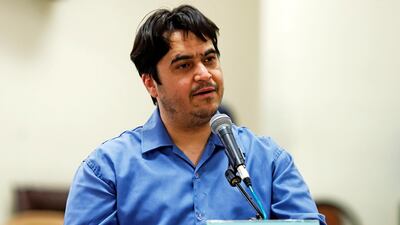Iran has stepped up its campaign of death threats against journalists working in London for BBC Persian with warnings that they will be kidnapped and brought back to Iran if they refuse to quit their jobs.
Staff for the British broadcaster said intimidation, which had been going on for years, was mounting with threats, cyberbullying and pressure put on their Tehran-based families, members of whom were arrested and questioned by Iranian agents.
The latest campaign has included:
- One staffer receiving a doctored photo showing her mother covered in blood
- Death threats including one warning that a journalist would be "skinned alive"
- Threats against the children and spouses of journalists
- Officials removing relatives' travel documents to cut family contacts.
Lawyers acting on behalf of the journalists said the UN failed to respond to their urgent requests to condemn Iran for the harassment.
“We have asked them to make a public statement condemning Iranian actions … but there has been radio silence over the last six months despite the extreme situation,” said Caoilfhionn Gallagher, counsel for the BBC World Service.
The failure to confront Iranian excesses has encouraged other states to harass critics, she said.
She cited the actions of Belarus, which forced a Ryanair plane to divert and land in Minsk so that authorities could arrest a dissident journalist and his girlfriend. Western countries in that case accused Belarus of state piracy and on Thursday imposed wide-ranging economic sanctions.
Relatives of the journalists arrested during the campaign said Ministry of Intelligence officials had repeatedly cited the case of Ruhollah Zam, a journalist executed by Iran.
Mr Zam had been living in exile in France but was detained after travelling to Iraq last year. The regime accused him of inciting the 2017-18 protests on his website.
Kasra Naji, a correspondent for BBC News Persian, said journalists walking home from their London offices were looking over their shoulders for fear of reprisals.
He told of seeing a Twitter message in which he was described as a traitor and his family should be "taught a lesson". Female journalists have told of receiving rape threats.
“We have been thrust into this position of being vilified, threatened and persecuted so routinely that it has become a matter of life and death for us and our families,” he said.
Iran's campaign against BBC Persian started in earnest during the 2009 Iranian presidential election when the regime tried to jam the channel’s satellite broadcasts.
In 2017, Iranian authorities launched a criminal investigation into 152 current and former BBC Persian journalists, accusing them of conspiracy against national security and freezing their assets. Journalists at the London-based network Iran International have also been harassed.
The harassment of staff intensified when journalists covered the bloody purge of mass anti-government protests in November 2019.
The journalists are raising their case at the UN Human Rights Council, which is currently holding a three-week session.


